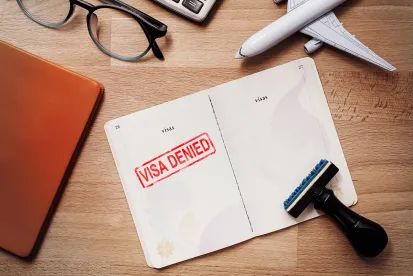On June 22, 2020, the President issued an extension and expansion of a previously issued Proclamation that suspends the entry of certain foreign nationals into the United States. The previous Proclamation suspended the issuance of new green cards to those applying through a U.S. Consulate abroad. The Proclamation was set to expire on June 22, but is now extended through December 31, 2020. Further, the suspension of entry is now expanded to include those seeking to enter in H-1B, H-2B, J or L status and their dependents.
This Proclamation applies only to those that are outside of the U.S. as of June 24, 2020 and do not possess a currently valid visa or other travel document. As a result, for those currently in the U.S. holding these statuses, the Proclamation will not have a direct impact. Also, for those outside of the U.S. with a valid visa, they will still be able to enter the U.S. on that visa. Further, foreign nationals seeking a change or an extension of status in the U.S. will be able to do so.
To Whom Does the Order Apply?
Pursuant to the Proclamation, the suspension and limitation on individuals seeking entry as nonimmigrants will apply only to foreign nationals who:
-
are outside the United States on the effective date of this Proclamation (June 24, 2020);
-
do not have a nonimmigrant visa that is valid on the effective date of this Proclamation; and
-
do not have an official travel document other than a visa (such as a transportation letter, an appropriate boarding foil, or an advance parole document) that is valid on the effective date of this Proclamation or issued on any date thereafter that permits them to travel to the United States and seek entry or admission.
What Are the Exemptions and Who Is Covered?
The Proclamation contains several exemptions:
-
Lawful permanent residents (green card holders);
-
Spouses and children of U.S. citizens;
-
Foreign nationals that will provide labor or services essential to the U.S.’s food supply chain;
-
Individuals seeking visas based on a treaty or trade agreement (TN, E, H-1B1);
-
Canadian nationals seeking entry into the U.S.; and
-
Foreign nationals whose entry is determined to be in the national interest.
This final, “national interest” category can be applied to foreign nationals that are involved in the provision of medical care to COVID-19 patients or medical research related to COVID-19 and those that “are necessary to facilitate the immediate and continued economic recovery of the United States.”
How Does this Proclamation Affect Employment?
The restrictions under the Proclamation specifically apply to individuals who must apply for nonimmigrant visas outside the country and subsequently travel to the United States The Proclamation does not halt all entry of individuals who hold nonimmigrant visas to the United States.
The TN, E-1, E-2, E-3 and O-1 nonimmigrant worker visas remain unaffected, and these individuals may travel outside the United States subject to normal travel requirements and restrictions. Foreign nationals currently in the United States seeking to change their nonimmigrant status or apply for extensions within the United States will not generally be adversely affected.
In light of the circumstances, all current H-1B, H-2B, J and L nonimmigrant visa holders should avoid imminent travel. Any foreign national who must travel internationally should contact legal counsel prior to travelling abroad.
Summary of Current Visa and Travel Restrictions
This Proclamation is now added into the mix of current travel restrictions:
-
Routine visa services at all U.S. embassies and consular posts have been suspended since March 20, 2020, and remain suspended until further notice;
-
The U.S. land borders with Canada and Mexico remain closed for non-essential travel through at least July 21, 2020;
-
Per prior Presidential Proclamations, the entry of most foreign nationals (regardless of nationality) who were physically present in China, Iran, Brazil, the European Schengen Area, the United Kingdom and Ireland during the 14-day period before attempted entry into the United States also has been suspended. These suspensions remain in effect until otherwise terminated.




 />i
/>i
